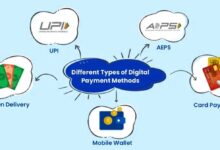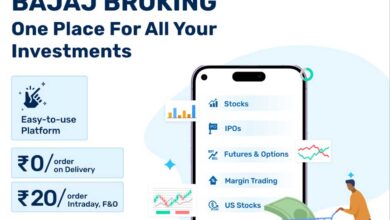
At any busy store where customers leave smiling and satisfied, there is an underlying system at play. This seamless experience is thanks to the Point-of-sale (PoS) system, the modern equivalent of a cash register.
A PoS system includes all the hardware and software needed for transactions, such as cash drawers, credit card readers, barcode scanners, and receipt printers. But modern PoS systems do much more than ring up sales. They streamline operations, automate transactions, and offer valuable business insights. Investing in a PoS system is one of the best decisions for any business, whether in-store or online.
In retail and hospitality, point-of-sale systems are vital for smooth transactions and good customer service. However, even top systems can face issues that disrupt operations and upset customers. This article shares some very common challenges in implementing smooth PoS transactions.
Technical challenges and hurdles to PoS systems
Selecting a suitable PoS system is a significant decision, but successfully implementing a Point-of-sale (PoS) system is even more crucial. However, the journey towards a successful PoS implementation is accompanied by its hurdles.Here is a comprehensive list of some technical and general obstructions that retail businesses may face-
1. Successful integration
Implementing and upgrading integrations is essential for any PoS setup. Key integrations, like payments, fiscal systems, and omnichannel order flows, directly impact revenue. Creating an effective omnichannel system requires careful planning.
This means defining order processes, working with business experts and product specialists, and anticipating potential problems. By considering these factors and making smart design choices, successful integration during point-of-sale implementation can be achieved
2. Hardware woes
Getting Point-of-sale hardware devices to work together smoothly can be a big challenge for businesses. It starts with making a detailed list of all your current hardware—what kind it is, how old it is, and if it needs any updates.
Hardware malfunctions are among the most frustrating and costly issues for PoS systems. They can involve problems like broken scanners, printers, cash drawers, or terminals, leading to delays, errors, or data loss. To prevent these issues:
- Select high-quality and durable hardware that works well with your PoS software
- Regularly maintain and clean your hardware devices
- Quickly replace or repair any faulty or outdated hardware
- Keep backup hardware available for emergencies
3. Network problems
Network problems are common in PoS systems, disrupting business operations and communication. Issues like poor connectivity, slow speeds, or downtime can lead to data loss or transaction failures. To prevent these issues:
- Choose a reliable internet service provider with fast, stable connectivity
- Use compatible wired or wireless network device
- Secure your network with encryption, firewalls, and strong passwords
- Prepare backup network devices or offline modes for seamless operation during outages
4. Data breach or loss
Data loss is a critical issue for PoS systems, potentially harming your business’s reputation and profitability. It can involve problems like corrupted files, deleted records, or stolen information, leading to inaccurate reporting, legal issues, or customer dissatisfaction. To prevent data loss, consider these steps:
- Regularly back up your data to an external device or cloud service
- Secure your data with encryption and strong passwords to prevent unauthorized access
- Have data recovery software or services ready in case of accidental or malicious data loss
- Adhere to data retention and disposal policies to meet legal and ethical standards
5. Customer grievances
Complaints are a direct result of point-of-sale system issues, such as long wait times, incorrect charges, or poor service. These complaints can harm customer loyalty, retention, and referrals. To prevent customer complaints:
- Ensure your PoS system is fast, accurate, and easy to use for both employees and customers
- Offer multiple payment options to provide ease to customers
- Provide receipts and invoices for customer verification and record-keeping
- Handle any customer complaints promptly and professionally using your PoS system’s customer service features
What should a good Point-of-sale system have?
There are some essential features that a reliable PoS system must have. Take a look at some of these-
- Shortcut keys: In order to increase the checkout speed, items that are frequently purchased should be displayed
- Payment options: A good PoS system needs to have multiple payment options- wallets, credit/debit cards, and online payment options. Higher payment flexibility, better user interface
- Omnichannel management: PoS system should support an omnichannel experience and provide online sales management tools to boost your online presence and grow your business
- Customer management tools: Your PoS system should allow you to look up customers by name or other criteria and add their purchase history to their profiles. Personalized marketing is a huge trend because consumers respond well to personalized efforts
Strategies for a seamless PoS rollout
While a good retail PoS system can integrate multiple business areas into one interface, other components may also be essential. Before purchasing a PoS system for your business, evaluate the features you need and those you can do without.
Pine Labs’ smooth point-of-sale platform provides seamless transactions and wider payment options. Track your payments and use multiple safe payment options. A portable and easy-to-use point-of-sale platform by Pine Labs would improve your retail business needs.







